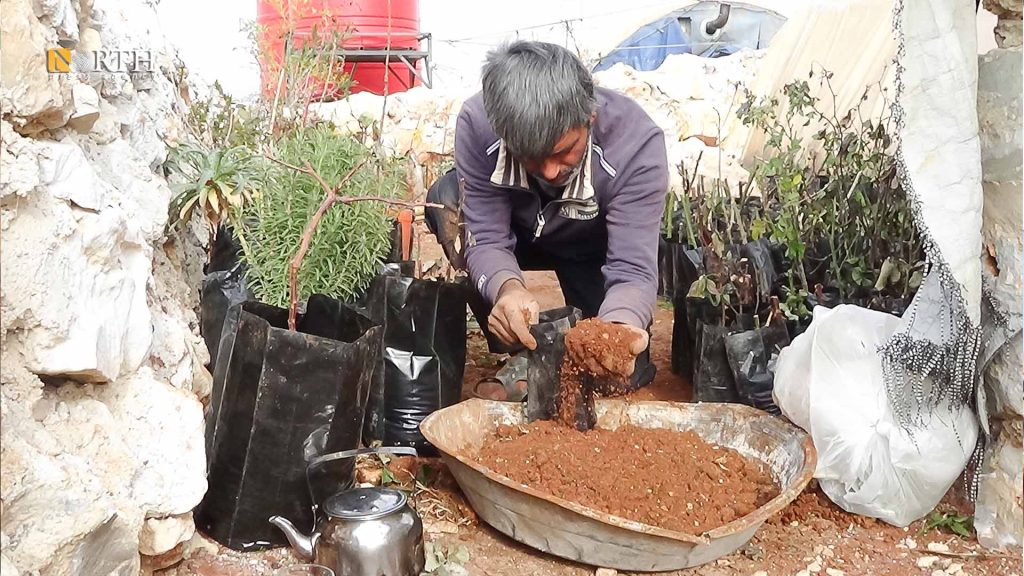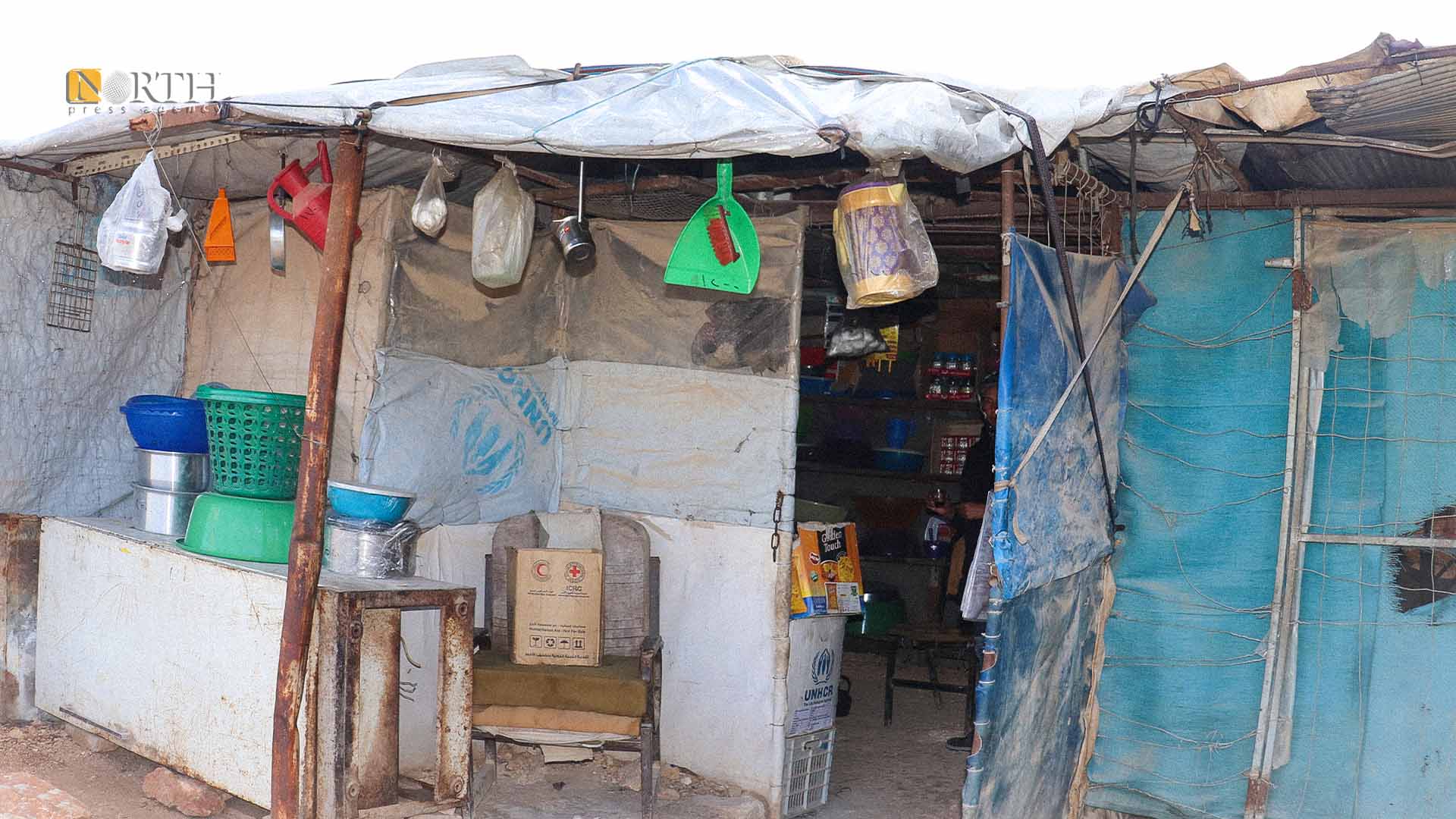ALEPPO NORTHERN COUNTRYSIDE, Syria (North Press) – Hanif Sheikho, a 60-year-old displaced man from Afrin, and his wife wake up every morning, close the door of their tent in Barkhodan Camp, in the northern countryside of Aleppo, north Syria, and go to their small shop that sells kitchen utensils.
Sheikho stays in the shop until it gets dark. He endures cold in the freezing weather as the shop does not contain a heater. He hopes to sell several kitchen tools to be able to afford daily food stuff for his family.
But, he sometimes stays for long hours and no single customer comes in. Then, he recalls his life back in his village in Mabata district in Afrin countryside. He used to have hundreds of olive trees and sustained on the profits he gained when he sold the harvest. Now, he is in a squatter camp which lacks basic necessities of life.
Four years ago, Sheikho, his wife, and his son fled the Turkish invasion. They displaced to Barkhodan camp that shelters Afrin displaced persons in Fafin town.
After all his failed efforts to find a job, Sheikho and his wife, set up a small shop in the market of the camp by gathering nylons, cartoons and shabby cloth.
IDPs of Afrin who live in squatter camps in Aleppo northern countryside take up small businesses to sustain their families. Back in Afrin, they had capitals and olive groves.

This is not what we used to be
In January 2018, the Turkish forces and Turkish-backed Syrian armed opposition factions launched a ground and aerial offensive on Afrin claiming to expel terrorist groups away from the Turkish-Syrian border and protect Turkey’s national security.
The bombardment lasted for 58 days, killed around 498 civilians and injured up to 696, including 303 children and 213 women, according to human rights documentation organizations and centers functioning in northeast Syria.
Moreover, 300,000 civilians fled the military actions, according to the statistic of the Autonomous Administration of Afrin Region which is currently functioning in Aleppo northern countryside.
Some of the people displaced to camps like al-Awda, Afrin, Barkhodan, Sardam and Shahab while others distributed on 42 villages and towns in Aleppo northern countryside.
Some other displaced families preferred to settle down in other cities across Syria notably in areas controlled by the Autonomous Administration of North and East Syria (AANES), while some others sought refuge abroad.
Sheikho sighed for the new situation he is struggling to live in following displacement. A few meter-wide tent has turned to be a house for him and his family. A small shop, made of shabby cloth, has turned to be his only source of income in lieu of 500 olive trees he used to have. “this is not what we used to be”.
Pointing to the roof and walls of the shop, he said “this is our situation now. The roof and walls of this shop are made of blankets and nylon bags. We even cannot replace them with bricks as we do not have the potentials.”
“Our situation here is extremely bad. We endure too difficult conditions and there are no job opportunities here,” he said.
An unprecedented inflation has pushed IDPs of Afrin to complain about their living conditions amid almost total lack of job opportunities and a siege imposed by Syrian government checkpoints on the areas they have displaced to.
Poor potentials
Ibrahim Ali, a 42-year-old IDP of Afrin, has set up a small nursery where he plants different kinds of flowers like jasmine and basil and some kinds of trees like lemons, oranges and fig trees.
Ali’s four-meter nursery has become his only source of income to sustain a six-member family.
Wearing clothes covered with dust, Ali said “I sell flowers and trees in the market. I have good profit during the times of Eid because people buy flowers to take them to the cemeteries.”
However, his poor financial situation prevents him from expanding his project and nursery. Buying bags, seeds and some kinds of flowers from Aleppo city cost too much, he said.
Hamida Mustafa, a mother of four who displaced from Jindires district, Afrin countryside, has opened a small clothes shop in Barkhodan Camp.
Wearing a black jacket and covering her head with a scarf, Mustafa said “following displacement, we found no job. We endured hardships. We experienced hunger and poverty.”
Mustafa and her children’s choice was to collect bricks from the demolished houses in Aleppo northern countryside to set up a store for selling clothes in order to provide for themselves.
However, Mustafa complained the turnout is slow. “It is 2:00 pm and I have not sold a single piece of clothes yet.”
Sitting in the shop without heaters, she added “Sometimes days and weeks pass and I do not sell anything. Inflation and low purchasing power probably deny the displaced people from buying clothes.”

